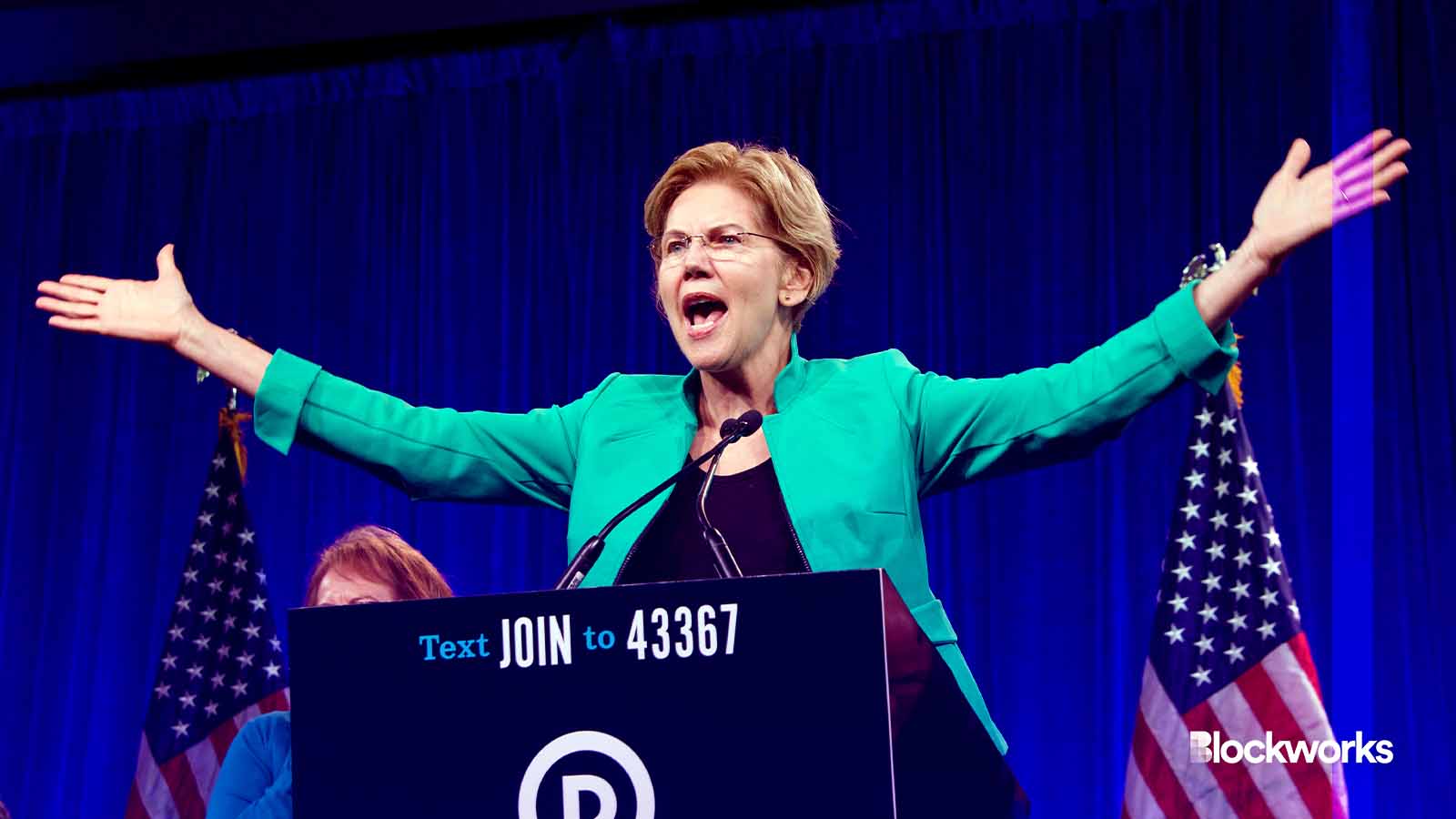Warren, Democrat lawmakers demand plan on crypto terror financing prevention
Over a hundred US lawmakers penned a letter to the National Security Advisor asking for answers on the Biden plan to prevent crypto usage by terrorist organizations

US Senator Elizabeth Warren | Sheila Fitzgerald/Shutterstock modified by Blockworks
A group of Democratic lawmakers is seeking information from the Biden administration on the use of crypto assets by terrorist groups.
More than 100 US lawmakers, including Senator Elizabeth Warren, penned a letter to both the National Security Advisor Jake Sullivan and the Under Secretary for Terrorism and Financial Intelligence at the Treasury, Brian Nelson, concerning reports that the militant group Hamas raised money through crypto.
The letter cites an article from the Wall Street Journal which speculated that Hamas used crypto as a way to fund its recent attacks on Israel.
“That the deadly attack by Hamas on Israeli civilians comes as the group has become ‘one of the most sophisticated crypto users in the terror-finance domain’ clarifies the national security threat crypto poses to the US, and our allies,” the politicians wrote.
They ask Sullivan and Nelson to address a number of questions, including how the Biden administration is approaching the use of crypto “by terrorist organizations.”
They’re also looking to get a firm estimate on how much was raised by both Hamas and the Palestinian Islamic Jihad. The Wall Street Journal report estimated that the groups raised roughly $130 million worth of crypto between August 2021 and June 2023.
Blockworks’ Andrew Thurman interviewed experts on organizations — like Hamas — using crypto to fundraise, and found that, because of crypto’s trackable nature, law enforcement is generally able to “successfully freeze crypto assets held by terrorist groups.”
Israel, earlier this month, froze Hamas-linked donation accounts with the help of UK law enforcement and Binance. Tether also froze roughly 32 wallets believed to be suspicious due to potential links to terrorism and warfare.
Hamas said earlier this year that its military wing had suspended bitcoin fundraising efforts, citing “concern about the safety of donors,” according to Reuters.
In early 2022, the US Treasury Department said in a risk assessment that “terrorist use of virtual assets appears to remain limited when compared to other financial products and services.”
Get the news in your inbox. Explore Blockworks newsletters:
- The Breakdown: Decoding crypto and the markets. Daily.
- 0xResearch: Alpha in your inbox. Think like an analyst.






